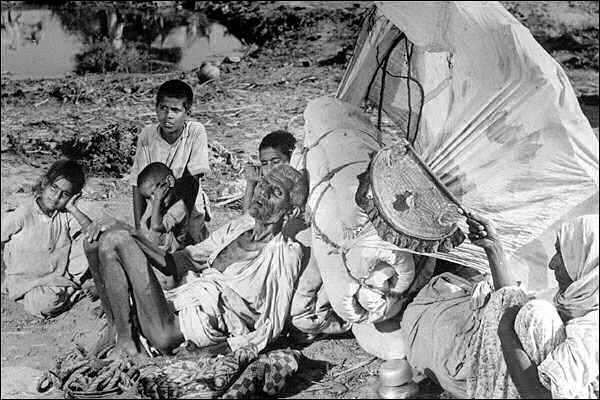Apr 22, 2025
Apr 22, 2025
Recent events have aroused a nationwide debate on the Partition. Various historical figures are being blamed. The desirability or otherwise of the Partition is in dispute. Forget the blame game. Forget the inevitability or otherwise of the Partition. Forget the merits or demerits of Partition. Focus on its impact. Some critics maintain that Partition is history that had best be forgot. The critics are wrong. Partition conditioned the history of the subcontinent for the past six decades. It continues to do so today. It will continue to do so in the future till its contradictions are resolved.

What are the contradictions of the Partition? Simply this, that the Congress was committed to a secular India while the Muslim League believed in the two nation theory. The Muslim League had its way. India was partitioned. The two nation theory triumphed. But the Congress maintained the fiction that it had nevertheless remained committed to secularism. Had it remained so, secular India would not have been partitioned. Had it in thought as well as in deed accepted the two nation theory all the Muslims of India would have had to migrate to Pakistan or to accept second class citizenship in India. The Congress did neither. It espoused secularism but accepted a communal formula. As a result the bulk of the Muslims remained in India as equal citizens while Pakistan ejected almost all its minorities.
It is this dichotomy that lies at the heart of extremist Hindutva. Proponents of Hindutva ask that if there is a Muslim Pakistan, why not a Hindu India. They have logic on their side but no wisdom. Congress leaders assert that India has always been, and always will be, secular though it had to be partitioned on communal lines. The Congress has wisdom on its side but no logic. The question to address therefore is how to resolve this dilemma.
To maintain logical consistency three possible solutions present themselves: first, that the Muslims be relegated to second class citizenship or be asked to migrate to Pakistan in order to establish a Hindu India; second, that India and Pakistan unite to recreate a unified India; third, that the status quo continues but a new arrangement be created that allows the people of both sovereign nations to mingle freely as citizens owning a common cultural heritage. It would be an arrangement that gives institutional expression to what Mr LK Advani once described the “cultural nationalism” of South Asia. Mr Advani’s effort to further his cause by a ham handed eulogy of Mohammed Ali Jinnah not surprisingly left him with egg splattered all over his face.
The first two solutions are wildly impractical as consciously achievable goals. They may be consigned to the trash can. It is the third solution that is theoretically achievable. It is gradually gaining new adherents. It is also gaining new opponents who are alarmed by the prospect of India and Pakistan establishing any consolidating arrangement. The alarmists contend that if Pakistanis have free access to India Islamist terrorism would escalate. They assert that Muslim separatism would increase manifold if the Muslims of Pakistan are added to those in India.
Such alarm flies in the face of current reality and earlier history. Islamist terrorism is a problem that will continue to escalate regardless if India and Pakistan remain apart or they closely cooperate. Terrorism arises from consciously injected subversion by interested forces hostile to India that have a deep vested interest in keeping India and Pakistan mutually hostile. Terrorism is a problem that will have to be tackled any way. It could be tackled much more effectively through genuine cooperation between both nations than through their singular efforts.
As for Muslim separatism increasing in the event of free intermingling of Indians and Pakistanis, it might be recalled that there are already more Muslims in India than in Pakistan. Further, the bulk of the Muslims in Pakistan had voted against the Partition in the last 1946 election in British India. The bulk of those Muslims who did vote in favour of Partition in 1946 belonged to present day India. The leader of the community that actually migrated to Pakistan, MQM leader Altaf Hussein, went on record to state that the Partition demand was the biggest blunder made by the Muslim community.
The question arises how an arrangement that allows free intermingling of Indian and Pakistani citizens might be established. It is a subject that requires separate treatment. Rest assured that such an arrangement will never fructify as long as the current official policy of kowtowing to China and failing to confront China-backed elements in Pakistan continues.
07-Sep-2009
More by : Dr. Rajinder Puri